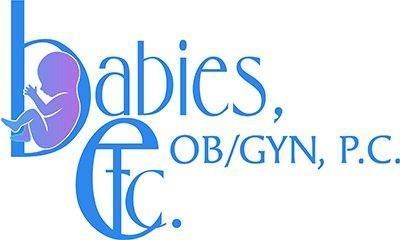Endometriosis
Endometriosis Specialist
Endometriosis is a common gynecological condition that affects women of childbearing age. Women with endometriosis may have painful, heavy periods and struggle with infertility. At BABIES ETC OB/GYN P.C. in Madison, Alabama, Jacqueline Sylvester, MD, FACOG, and the team specialize in diagnosing and treating endometriosis. Taking a personalized approach to care, they perform comprehensive evaluations so you get the answers and treatment you need.
Call the office to schedule a consultation today.
What is endometriosis?
Endometriosis is a painful gynecological condition that affects about 2-10% of women in the United States. Women with endometriosis grow endometrium-like tissue outside their uterus.
During your menstrual cycle, endometrial tissue grows along the lining of your uterus in preparation for pregnancy. Your body gets rid of the endometrial tissue through menstruation.
With endometriosis, you have endometrial-like tissue growing on your fallopian tubes, ovaries, and the tissue that lines your pelvis sheds in tune with your menstrual cycle. This displacedtissue causes small amounts of bleeding that leads to inflammation, swelling, and scarring of your reproductive organs.
What are the symptoms of endometriosis?
Pelvic pain during menstruation that worsens over time is the most common symptom of endometriosis. Other symptoms include:
- Heavy menstrual bleeding
- Pain during intercourse
- Painful urination during your period
- Painful bowel movements during your period
- Infertility
- Bloating
- Constipation or diarrhea
The severity of your symptoms may not accurately reflect the extent of your condition. Some women have severe pain with mild endometriosis, while others have mild or no pain with advanced endometriosis.
How is endometriosis diagnosed?
Dr. Sylvester and the team at BABIES ETC OB/GYN P.C. conducts comprehensive, patient-centered exams when you come in with symptoms that sound like endometriosis.
Dr. Sylvester asks detailed questions about your symptoms and menstrual cycle; she reviews your gynecological, medical, and family history and performs a physical and pelvic exam.
The team will also schedule ultrasounds to evaluate your reproductive organs and look for signs of endometriosis. Though the team can formulate a diagnosis after a history, physical, and ultrasound, they need to perform a laparoscopic procedure to confirm you have endometriosis.
During this procedure, Dr. Sylvester inserts a laparoscope through a small incision in your abdomen and looks for endometrial growths. Then, she takes tissue samples and sends them to the lab for evaluation.
How is endometriosis treated?
Dr. Sylvester creates individual treatment plans for endometriosis based on the severity of your symptoms and your future pregnancy plans. When possible, she takes a conservative approach, prescribing medications to manage symptoms, such as:
- Nonsteroidal anti-inflammatory drugs (NSAIDs)
- Hormonal contraceptives (to decrease endometrial tissue growth)
- Gonadotropin-releasing hormone (GnRH) agonists and antagonists (to stop periods)
- Progestin therapy (to stop your periods)
- Aromatase inhibitors (to decrease estrogen levels)
Endometriosis is a common gynecological condition that affects the quality of life. For expert care from an experienced team, call BABIES ETC OB/GYN P.C. or schedule a consultation online today.

Contact
235 Portal Lane, Unit A
Madison, AL 35758
Phone: 256-461-1766
Office Hours
Monday 9-5 • Tuesday 9-4
Wednesday 8-4 • Thursday 10-6
Friday 9-12:30
Quick Links
Quick Links
Contact Us
235 Portal Lane, Unit A
Madison, AL 35758
Phone: 256-461-1766
